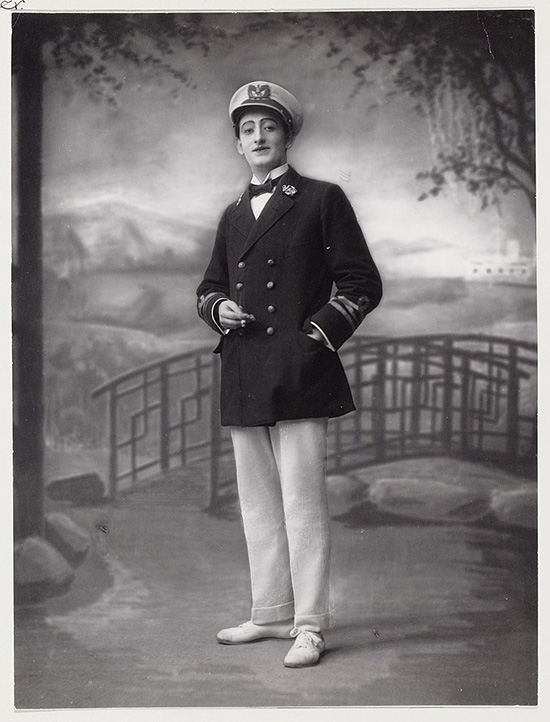Louis van Tulder
Van Tulder was born into a musical family, and already as a child sang in an amateur choir, like his father and brothers. Soon, he knew he wanted to become a singer, but his rigid father prohibited it: one elder brother was already studying music, and one musician in the family was just enough. So Louis had to work in a liquor distillery, and later in a bank. His participation in a church choir, though, soon resulted in voice lessons, then he became soloist at a high-level amateur oratorio choir, and second tenor of a vocal double quartet that was good enough to appear even at the Concertgebouw; he also played the organ at an Amsterdam church. In 1912, when "his" choir performed Haydn's Jahreszeiten, the solo tenor lost his voice during the concert; Van Tulder took over, and was successful. That started his solo career. But only in 1915, he worked up the courage to quit his job at the bank. The same year, he founded his own oratorio choir (which he also conducted), and in 1916, he joined the troupe of the Nederlandsche Opera (Amsterdam) as first lyrical tenor – initially under the stage name Leo Matul, since his father still didn't know (and must not know) that he was meanwhile a full-time musician! In 1919, he went on to the National Opera in Den Haag. In 1921, he quit opera for good – he thought his voice was too small for it, plus he had absolutely no acting talent, and had always felt uncomfortable on stage. So he focused entirely on oratorio and lied, and became a celebrity in that field, particularly in Bach's Passions, but also in the Dutch composer's Alphons Diepenbrock's lieder. Louis van Tulder appeared a total of 255 times with the Concertgebouw Orchestra, often conducted by Willem Mengelberg. From 1924 to 1933, he sang a lot in Germany and Switzerland, and in 1935, he sang a concert at La Scala. He was also part of the Hollandsch Vocaal Kwartet, which was famous for its Brahms renditions, and he taught voice. Of his three sons, one was killed in WWII, and after the war, another of them developed lethal cancer. Those blows of fate, and his own poor health, caused him to retire as a singer in 1950; he also invoked insufficient remuneration for his decision, saying that before the war, a concert singer could earn his livelihood with 50 or 60 appearances per year, but had meanwhile to sing at least 100 concerts, which overstrained the voice. He continued as a choirmaster and voice teacher. Van Tulder died after being run over by a car. Reference 1: Dutch Divas, reference 2 and picture source |
